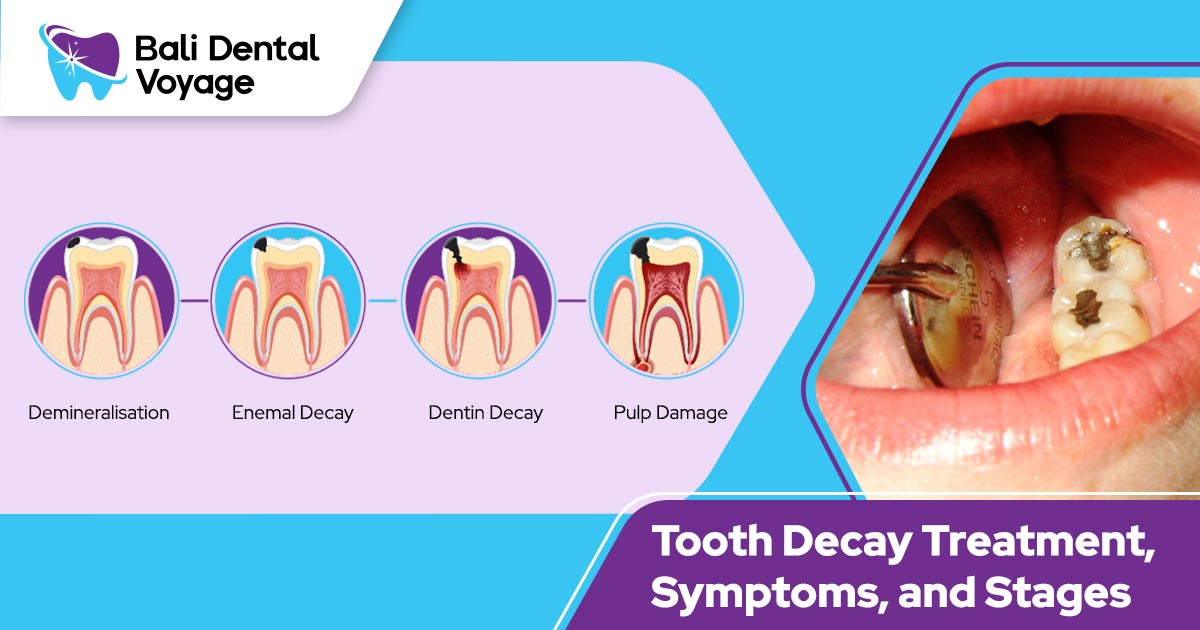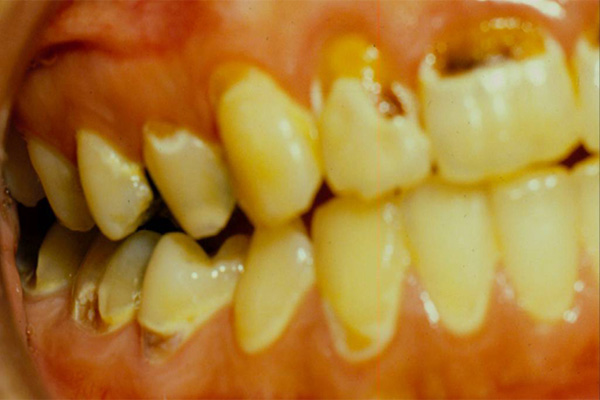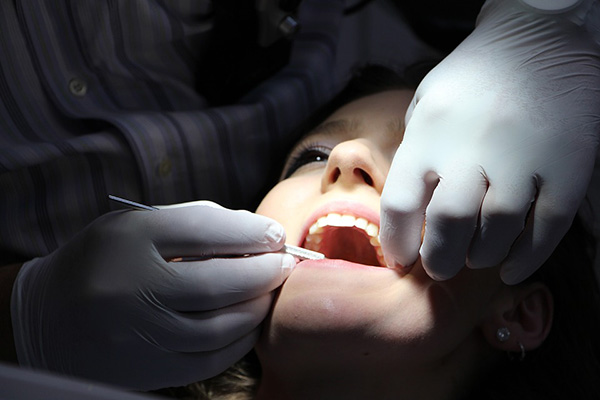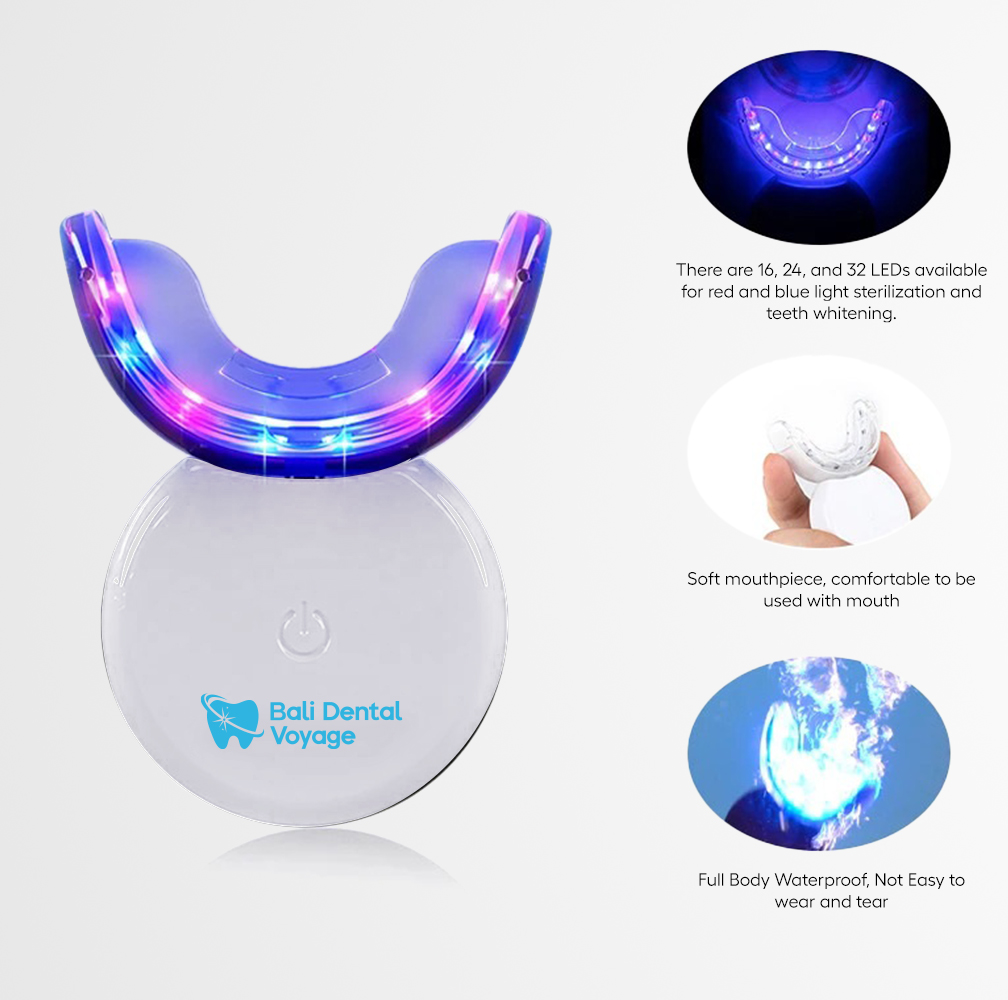
Tooth decay is a prevalent dental issue that can affect individuals of any age group. The condition arises due to a bacterial infection that gradually erodes the tooth structure. If not appropriately addressed, tooth decay can lead to tooth loss and other severe oral health complications.
Table of contents:
This article aims to cover the symptoms, stages, and potential treatments for tooth decay.
What Is Tooth Decay
Tooth decay, which is also called dental caries, is a bacterial infection that impacts the tough outer layer of the tooth known as enamel. The condition is brought about by the acid that bacteria produce while feeding on the sugars and carbohydrates in the mouth. This acid eventually erodes the enamel, forming a cavity or a hole in the tooth.
Tooth decay can develop in any tooth section, including the chewing surfaces, spaces between teeth, and near the gumline. As it is a progressive ailment that can worsen over time, early identification and treatment are critical.
Tooth Decay Symptoms
During the initial stages, tooth decay may not produce any symptoms. However, as it advances, you may experience the following signs:

- Tooth Sensitivity
One of the primary indications of tooth decay is sensitivity. You may encounter a sharp pain or uneasiness while consuming hot, cold, or sugary foods or beverages. - Pain
As the decay reaches the inner layer of the tooth called the dentin, you may experience persistent tooth pain. - Visible Holes or Pits
You may observe an opening or pit in the impacted tooth that is visible without the use of any special equipment. - Discolouration
The affected tooth may display brown, black, or grey discolouration. - Bad Breath
Tooth decay can cause unpleasant breath or an unpleasant taste in your mouth.
Tooth Decay Stages
Tooth decay advances through various stages, each with its unique symptoms and treatment options.
Initial Decay
During the initial stages, dental caries may not show any symptoms. The enamel starts to soften and weaken due to the acid produced by bacteria.
Enamel Decay
As the enamel continues to dissolve, a small hole or cavity may appear in the tooth. This stage may cause tooth sensitivity, but it may still not show any other symptoms.
Dentin Decay
Once the decay reaches the dentin layer, you may experience persistent tooth pain. At this stage, the cavity will continue to increase in size and depth.
Pulpitis
If the decay penetrates the innermost layer of the tooth, known as the pulp, you may experience severe pain and sensitivity to temperature. At this point, root canal therapy or tooth extraction may be necessary.
Tooth Decay Treatment

The treatment of dental caries depends on the stage of the disease. In the early stages, the decay may be treated with a fluoride treatment or a filling. In more advanced cases, a root canal or tooth extraction may be necessary.
- Fluoride Treatment
During the initial stages of decay, a fluoride treatment may be recommended. This involves applying a fluoride gel or varnish to the affected tooth to help remineralise the enamel and prevent further decay. - Tooth Filling
If the decay has advanced to the enamel or dentin layer, a filling may be required to restore the tooth. The decayed portion of the tooth is removed, and the remaining cavity is filled with a tooth-coloured material.
- Root Canal
If the decay reaches the pulp of the tooth, a root canal may be necessary to eliminate the infected tissue and save the tooth. The dentist will remove the pulp, clean out the root canal, and fill it with a material to prevent further infection. - Tooth Extraction
In severe cases, such as when the decay is too advanced to be treated with a filling or root canal, the tooth may need to be extracted. This involves the complete removal of the tooth from the socket.
The dentist may suggest a dental implant or bridge to replace the missing tooth. Prevention is the best approach to dental caries.
The following are some suggestions to help prevent dental caries:- Brush your teeth two times a day with fluoride toothpaste.
- Floss every day to remove plaque and food particles from between teeth.
- Limit sugary and acidic foods and beverages.
- Visit your dentist regularly for check-ups and cleanings.
- Consider dental sealants, which can protect the chewing surfaces of the back teeth from decay.
Conclusion
Dental caries is a prevalent dental issue that can lead to severe pain and oral health complications if not treated promptly. Detecting and treating the disease in its early stages is crucial to prevent its advancement.
If you notice any signs of dental caries, such as tooth sensitivity or pain, discolouration, or visible holes, it is essential to schedule an appointment with your dentist immediately. By taking proper care of your teeth and visiting your dentist regularly, you can effectively prevent dental caries and maintain optimal oral health.
Book Your Bali Dental Appointment Online with Bali Dental Voyage
Make your dental appointment in Bali a breeze with Bali Dental Voyage‘s web-based booking system! Our easy-to-use platform allows you to schedule your Bali root canal or tooth-filling Bali appointment from the comfort of your own home. No more waiting on hold or trying to communicate in a foreign language – our online system makes booking your appointment simple and stress-free.
Plus, our experienced dental professionals use the latest technology and techniques to provide efficient and comfortable care. Don’t put off your dental needs any longer – visit our website and schedule your appointment with Bali Dental Voyage today!




